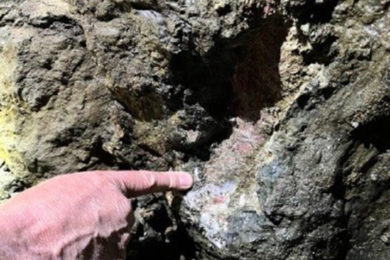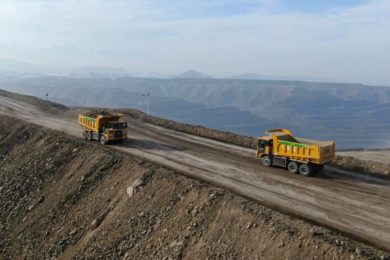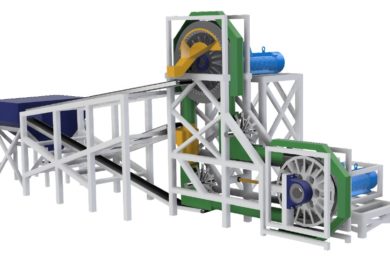 Multotec has received an order for its high capacity classification cyclones for the Olenyi Ruche project in Russia, a mining exploration company currently involved in launching a phosphate ore beneficiation project. The order was placed with Multotec by North Western Phosphorous, a major Russian project house contracted by Olenyi Ruche to construct the new beneficiation plant. Delivery was scheduled for September 2011 and Multotec engineers were deployed to the site to assist with plant commissioning.
Multotec has received an order for its high capacity classification cyclones for the Olenyi Ruche project in Russia, a mining exploration company currently involved in launching a phosphate ore beneficiation project. The order was placed with Multotec by North Western Phosphorous, a major Russian project house contracted by Olenyi Ruche to construct the new beneficiation plant. Delivery was scheduled for September 2011 and Multotec engineers were deployed to the site to assist with plant commissioning.
“There are a few companies globally who work with phosphate production,” said Dean Lincoln, General Manager – Marketing and Business Development at Multotec, adding: “USA, Morocco, China, Russia, Tunisia and Jordan are the biggest players in this market. To compete for this order, our engineers conducted extensive mass balance simulation exercises over a three month period, working closely with the project house, to demonstrate that our technology was capable of fully addressing the unique requirements of this project. We also took account of our previous experience in similar projects and with in-house test work on bulk samples. In addition to our technical aptitude, I believe the order was ultimately placed with us based on price, delivery capabilities, quality and service.”
A unique feature of this order is that Multotec will supply the customer with Russian RTN certificates of compliance. This means the cyclones have to be certified for use on the Russian market by RTN, or Rostekhnadzor, the Russian body that regulates industrial safety in mining in that country. “We regard this order as a real breakthrough, allowing us to expand our footprint in the international phosphate industry and opening up many new possibilities for us,” Lincoln said. The order calls for five clusters of high capacity classification cyclones with 25 mm replaceable natural rubber liners and mild steel shells. The replaceable rubber liners deliver up to three times the life of conventional liners, which reduces operating costs, maintenance and stockholdings. At the new phosphate plant, the nepheline concentrate densifier will harness a duplex cluster of Multotec’s HC600 cyclones, with a duplex cluster of the HC900 cyclones dedicated to apatite flotation feed preparation. A cluster of three HC750 flat bottom cyclones will handle the classification of flotation tailings and a duplex cluster of HC600 cyclones will process flotation concentrate upgrade. A cluster of 14 HC250 cyclones will be installed for desliming.
“The use of flat bottom cyclones is unconventional,” Lincoln said. “Phosphate is a difficult mineral to simulate because its pH fluctuates during the process. The flat bottom cyclones will achieve a coarser cutpoint and suit the particular phosphate found in this region.” Multotec’s high capacity classification cyclones have been designed for maximum separation efficiency and low running costs. Overflow elbows are made from an abrasion resistant polymer that is lightweight and cost effective and requires no corrosion protection. A rubber sleeve is fitted to reduce wear at the vortex finder discharge. The design of the scrolled evolute inlet reduces vortex finder wear to the degree that polyurethane or rubber lined vortex finders can be used cost effectively. Outer housings are fitted with weep holes located in the highest wear areas. Slurry dripping from the weep holes gives an early indication that the liner needs replacing, preventing housing wear. The apex is housed in a lightweight holder allowing for easy inspection and/or replacement of the apex. Inserts are available in either polyurethane or silicon carbide.








